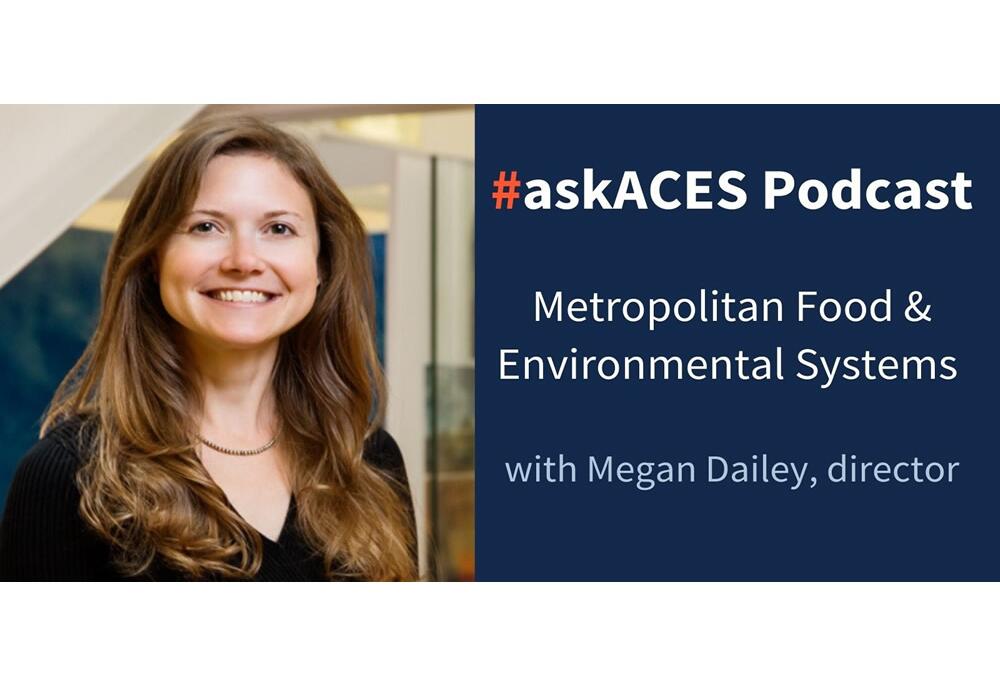New ACES major prepares students to make an impact across the food system

URBANA, Ill. – Sustainability is an important focus in the College of Agricultural, Consumer and Environmental Sciences (ACES) at University of Illinois, and students are learning how to create more sustainable systems across all of ACES’ areas of study.
One way students are able to weave all this together is through ACES’ new Metropolitan Food & Environmental Systems (MFST) major where students learn about every aspect of building stronger and more sustainable food systems on both local and global scales.
Learn more and apply to MFST for fall 2021 by Jan. 5
Megan Dailey, director of MFST, helped develop the first of its kind undergraduate major and now oversees its execution. In her new #askACES podcast she explains what a food system is and describes the differences between rural and metropolitan food systems.
“A food system is everything that’s included in getting food from the farm to the plate, but it’s not just the supply chain logistics of doing that,” Dailey says. “It also includes the biological, economic, political, social, and health systems that are involved.”
The differences between metropolitan and rural areas include population and geography, as well as the ways societies deal with the sub-systems included in food systems. Creating change and changing policies at a metropolitan level is much more complex, and the MFST major helps students navigate those complex systems.
MFST students explore the College of ACES in its entirety and take classes in every single department to get a broader and more well-rounded view of food systems.
“The students need to understand the science and practice of food production, processing, distribution, consumerism, and waste, and the way we do that is by structuring coursework and experiences across all of the departments in ACES,” Dailey says.
The new MFST major will not only prepare students through experiential learning outside of the classroom. Dailey works with students looking to make changes related to food access and affordability in so many ways. She helps tailor individual experiences and curriculums so students “learn more today and change the world tomorrow.”
Hear more about MFST and the long list of career opportunities connected to this major as well as what kind of learning students can expect in the #askACES podcast.
To learn more about supporting the MFST major, contact the ACES Office of Advancement.